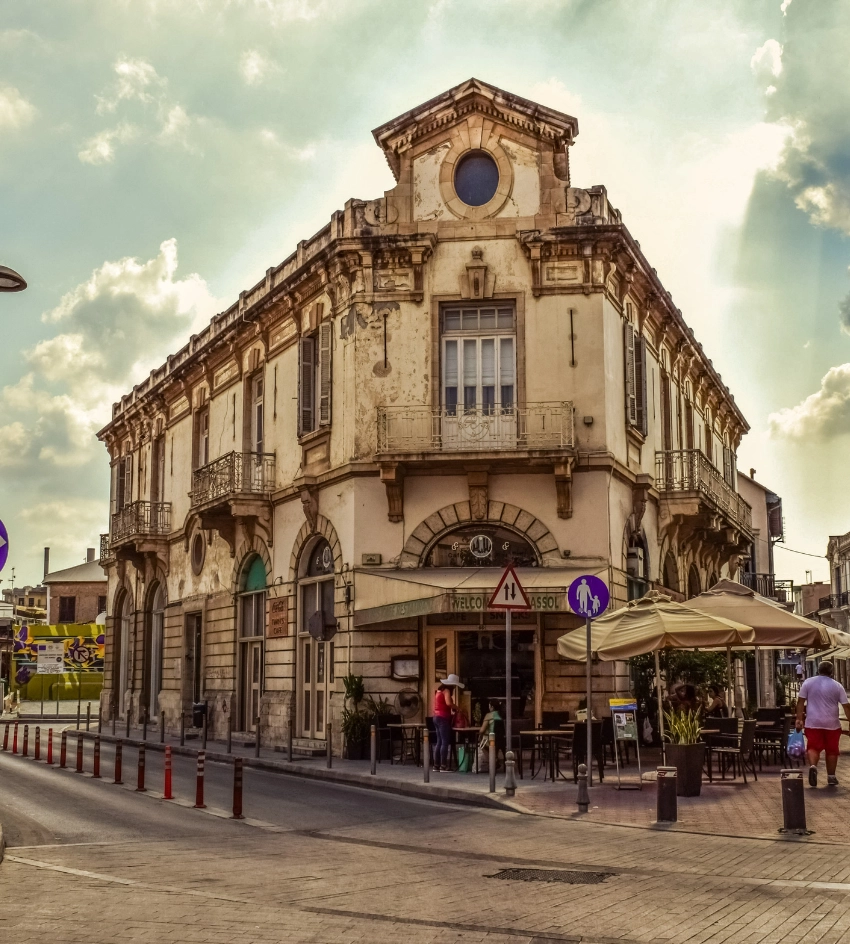STUDY IN FRANCE
Studying in France can be a great opportunity for international students looking to pursue higher education in a vibrant and culturally rich environment. France is home to some of the world’s top universities, including the prestigious Sorbonne, and offers a diverse range of academic programs in fields such as engineering, business, arts, humanities, and more.
One of the benefits of studying in France is the opportunity to immerse yourself in the French language and culture. Many universities offer language courses and cultural programs to help international students adjust to their new environment. Additionally, there are many scholarships and financial aid options available to international students to help cover the cost of tuition and living expenses.
Overall, studying in France can be a rewarding experience for those who are willing to embrace the country’s unique culture and academic offerings.

QUICK FACTS ABOUT FRANCE:
- France is located in Western Europe and is the largest country in the European Union.
- The capital city of France is Paris, which is known for its iconic landmarks such as the Eiffel Tower, Louvre Museum, and Notre-Dame Cathedral.
- French is the official language of France, but many universities also offer courses in English.
- France is home to some of the world’s top universities, including Sorbonne University, École Polytechnique, and Sciences Po.
- The cost of living in France can be relatively high, especially in major cities like Paris. However, there are many scholarships and financial aid options available for international students.
- France has a rich cultural heritage, and students can experience a diverse range of art, music, cuisine, and fashion.
- France has a well-developed public transportation system, including trains, buses, and metros, which makes it easy to get around and explore the country.
- International students are allowed to work part-time in France while studying, which can be a great way to gain work experience and supplement their income.
- France is known for its high quality of life and excellent healthcare system, which are both available to international students.
- France is a member of the European Union, which allows international students to travel freely throughout Europe and access other opportunities for study and travel.
WHY STUDENTS CHOOSE TO STUDY IN FRANCE?
High-Quality Education: France is home to some of the world’s top-ranked universities and academic institutions, offering a wide range of programs in various fields of study. French institutions are renowned for their high academic standards and research excellence.
Diverse Study Options: French institutions offer a variety of programs at all levels of study, including Bachelor’s, Master’s, and PhD degrees. Students can choose from programs in fields such as engineering, business, humanities, arts, and sciences.
Affordable Education: Compared to other popular study destinations such as the United States and the United Kingdom, France offers relatively affordable education. Tuition fees in France are generally lower than in other countries, and many programs are heavily subsidized by the government.
Cultural Diversity: France is a diverse and multicultural country with a rich history and heritage. Studying in France provides students with the opportunity to experience French culture, language, and way of life.
International Community: France has a large international student community, with students from all over the world studying in French institutions. This provides students with the opportunity to build a global network and make connections with people from different cultures and backgrounds.
Career Opportunities: France is home to many multinational companies and has a strong economy, making it an attractive destination for job seekers. Studying in France can provide students with valuable work experience and networking opportunities that can help them launch their careers.
Travel Opportunities: France is located in the heart of Europe, making it a great base for exploring other countries and cultures. Students can take advantage of their time in France to travel and experience new cultures.
TOP UNIVERSITIES IN FRANCE:
- Sorbonne University
- École NormaleSupérieure de Lyon
- Université Paris Sciences et Lettres
- Ecole Polytechnique
- Sciences Po
- Université Paris-Saclay
- Université Paris 1 Panthéon-Sorbonne
- Université Paris-Dauphine
- Université Paris-Sorbonne (Paris IV)
- Université Paris Descartes (Paris V)
- Université Paris 6 Pierre et Marie Curie
- Université Paris Nanterre
- Grenoble Alpes University
- Aix-Marseille University
- Université de Bordeaux
INTERESTED TO STUDY?
LET'S TALK TO OUR EXPERT COUNSELLORS

POPULAR COURSES OFFERED IN UNIVERSITIES IN FRANCE:
Engineering and Technology: France is known for its excellent engineering and technology programs. Some of the popular courses in this field include Mechanical Engineering, Electrical Engineering, Computer Science, and Aerospace Engineering.
Business and Management: France is also known for its top-ranked business schools and management programs. Some of the popular courses in this field include International Business, Management, Finance, and Marketing.
Arts and Humanities: France has a rich cultural heritage, and its universities offer a wide range of programs in arts and humanities. Some of the popular courses in this field include Fine Arts, History, Philosophy, Literature, and Linguistics.
Sciences: France is home to many research institutions and offers a variety of programs in science-related fields. Some of the popular courses in this field include Biology, Chemistry, Physics, Mathematics, and Environmental Science.
Medicine and Health Sciences: France has a well-developed healthcare system and offers many programs in medicine and health sciences. Some of the popular courses in this field include Medicine, Nursing, Dentistry, Pharmacy, and Public Health.
Law and Social Sciences: France has a long tradition of legal and social studies, and its universities offer many programs in this field. Some of the popular courses in this field include Law, Political Science, Sociology, Anthropology, and International Relations.
Sure, here are the general study requirements for international students who want to study in France:
Language Proficiency: International students are required to have a good command of the French language if they plan to study in French-taught programs. Some universities also offer courses in English, but students still need to meet the language requirements set by the university. Language proficiency can be demonstrated through standardized tests such as DELF or DALF.
Academic Qualifications: International students must have completed a secondary education equivalent to the French Baccalaureate or a recognized international diploma such as the International Baccalaureate. Depending on the program, some universities may require specific subject requirements or a minimum grade point average.
Admission Requirements: International students must apply to universities through the online portal for international students, Campus France. They must provide a copy of their academic transcripts, language proficiency test scores, and other required documents such as a motivation letter and recommendation letters.
Financial Support: International students must demonstrate that they have sufficient financial resources to cover their tuition fees and living expenses during their studies in France. This can be done through bank statements or scholarship letters.
Visa Requirements: International students need to obtain a student visa to study in France. To obtain a visa, they must provide proof of admission to a French university, proof of financial support, and other required documents such as travel insurance.
DOCUMENTS CHECKLIST FOR FRANCE:
By checking the below provided Checklist for France, organize all your documents before applying for admission to any University in France.
- Completely Filled the Application Form.
- Online Application Receipt.
- Academic Transcript.
- Language Proficiency Test Scores.
- Letter of Recommendation (LOR).
- Detailed Study Programs/Course Descriptions.
- Letter of Motivation.
- Resume/CV.
- Identity document/Residency Permit.
- Passport Copy.
- Work Experience letter.
- Additional Documents.
TUITION FEES:
Bachelor’s Degree: The tuition fees for Bachelor’s degree programs in France vary between €170 and €700 per year for EU students. For non-EU students, tuition fees range from €2,770 to €16,000 per year.
Master’s Degree: The tuition fees for Master’s degree programs in France vary between €243 and €601 per year for EU students. For non-EU students, tuition fees range from €2,770 to €20,000 per year.
PhD: PhD programs in France are generally free for both EU and non-EU students. However, some institutions may charge tuition fees for international students.

LIVING COSTS IN FRANCE:
Accommodation: The cost of accommodation in France varies depending on the location and the type of accommodation. On-campus student residences can cost around €200-€600 per month, while private accommodation such as apartments or shared flats can range from €400 to €1,000 per month.
Living Expenses: Living expenses such as food, transportation, and entertainment can vary depending on the location and lifestyle of the student. On average, students can expect to spend around €700-€1,000 per month for these expenses.
Health Insurance: International students are required to have health insurance while studying in France. The cost of health insurance can range from €215 to €600 per year depending on the coverage and the insurance provider.
Visa Fees: International students are required to obtain a student visa to study in France. The visa application fee is €99, and students may also need to pay for additional fees such as biometric data collection.
SCHOLARSHIPS FOR INTERNATIONAL STUDENTS:
Eiffel Scholarship Program:
- Merit-based scholarship
- International students
- Master’s and PhD degree in France
- Monthly allowance of €1,181 for Master’s students
- Monthly €1,400 for PhD students
- Cover health insurance and travel expenses.
Erasmus+ Program: The Erasmus+ Program is a European Union initiative that provides funding for students who wish to study in a European country. The program offers scholarships for undergraduate and graduate students, as well as staff members, for short-term or long-term study periods in France.
French Government Scholarships: The French Government offers several scholarships for international students who wish to study in France.
- Charpak Scholarship for Indian students
- Eiffel Scholarship for students from developing countries
- Major Excellence Scholarship for students from selected countries
Campus France Scholarships: Campus France offers several scholarships for international students who wish to study in France. These scholarships include
- The Bourse Eiffel
- The Bourse Major
- The Bourse Excellence-Major
University-specific Scholarships: Many universities in France offer scholarships for international students. These scholarships may be based on academic merit, financial need, or other criteria. It is recommended that students check with their chosen institution for more information on available scholarships.
HOW AGC HELP YOU?
- Evaluating your educational background in order to position you for further study.
- Choose the best universities and programs in accordance with your professional plan.
- Ensuring your acceptance to the university and program of your choice.
- Assisting you in obtaining scholarships if you are qualified.
- Assisting you in paying your tuition fees.
- Effective and professional processing of visas.
- Assisting with the dependent visa application.
- Getting ready for your visa interview.
- Booking flights with assistance.
- We also provide airport pickup services in practically every country on earth.
- Arranging lodging and assisting you in locating employment in the nation of your choice.

TOURIST VISA FOR FRANCE
A tourist visa for France allows you to visit the country for leisure, sightseeing, and recreational purposes. This type of visa is typically issued for short stays and is part of the Schengen visa system, which allows you to travel to most European countries within the Schengen Area using a single visa.
Schengen Area: France is a member of the Schengen Area, which comprises 26 European countries that have abolished passport and other types of border control at their mutual borders. A Schengen visa for France allows you to travel within the Schengen Area for up to 90 days within a 180-day period.
Visa Requirements: The specific requirements for a French tourist visa can vary based on your nationality and individual circumstances. However, common requirements include
- A valid passport
- A completed visa application form
- Passport-sized photos
- Travel itinerary
- Proof of accommodation
- Travel insurance
- Proof of sufficient funds to cover your stay
- Documents to demonstrate the purpose of your visit and your intent to return to your home country.
Application Process: You usually need to apply for a French tourist visa at the French consulate or embassy in your home country or the country where you legally reside. The application process may involve submitting documents, attending an interview, and paying a visa fee.
Visa Fee: The visa fee is \$80, and can vary depending on your nationality and the type of visa you’re applying for. Fees are usually non-refundable, even if your visa application is denied.
Processing Time: It’s advisable to apply well in advance of your planned travel dates, as visa processing times can sometimes be unpredictable.
Validity: A standard Schengen tourist visa for France is usually valid for 90 days within a 180-day period. This means that during any 180-day period, you can stay in the Schengen Area for up to a total of 90 days.
Extension: Generally, Schengen tourist visas are not extendable. If you wish to stay longer in France or the Schengen Area, you would need to leave the Schengen Area and then re-enter after the 90/180-day period.
Biometrics: Some countries require applicants to provide biometric data (fingerprints and/or photograph) as part of the visa application process.

WORK VISA IN FRANCE
Eligibility:
To be eligible for a work visa in France, you must meet the following requirements:
- You must be a citizen of a country that requires a visa to enter France.
- You must have a valid passport that is valid for at least 3 months after the end of your stay in France.
- You must have a job offer from a French employer.
- Your employer must have obtained a work permit for you from the French government.
- You must have a medical certificate.
- You must have a certain level of education and skills that are relevant to the job you are applying for.
- You must not have a criminal record.
Types of work visas:
There are two types of work visas in France: long-stay visas and short-stay visas. Long-stay visas allow you to stay in France for more than 90 days. Short-stay visas allow you to stay in France for less than 90 days.
Required documents:
The required documents for a work visa in France include:
- A completed visa application form.
- A copy of your passport.
- A copy of your job offer.
- A copy of your work permit.
- A recent passport-sized photograph.
- A medical certificate.
- A letter from your employer stating that they have met the requirements for hiring a foreign worker.
- A diploma or other proof of your education and skills.
- A criminal record checks.
Processing time:
The processing time for a work visa in France is usually 10-15 days. However, it can take longer during peak travel seasons.
Where to apply:
You can apply for a work visa in France at the French embassy or consulate in your home country.
Cost: The cost of a work visa in France varies depending on your nationality. For citizens of most countries, the visa fee is \$120.
Facts:
Here are some facts about work visas in France:
- The French government issues over 1 million work visas each year.
- The most common nationalities of work visa holders in France are Moroccan, Algerian, and Tunisian.
- The most common occupations for work visa holders in France are in the manufacturing, construction, and hospitality sectors.
Why work in France:
There are many reasons why people might want to get a work visa in France. Some of the most common reasons include:
- To find a better job opportunity.
- To live and work in a country with a high standard of living.
- To experience French culture and way of life.
- To be closer to family and friends who live in France.

WORK VISA IN FRANCE
Eligibility:
To be eligible for a work visa in France, you must meet the following requirements:
- You must be a citizen of a country that requires a visa to enter France.
- You must have a valid passport that is valid for at least 3 months after the end of your stay in France.
- You must have a job offer from a French employer.
- Your employer must have obtained a work permit for you from the French government.
- You must have a medical certificate.
- You must have a certain level of education and skills that are relevant to the job you are applying for.
- You must not have a criminal record.
Types of work visas:
There are two types of work visas in France: long-stay visas and short-stay visas. Long-stay visas allow you to stay in France for more than 90 days. Short-stay visas allow you to stay in France for less than 90 days.
Required documents:
The required documents for a work visa in France include:
- A completed visa application form.
- A copy of your passport.
- A copy of your job offer.
- A copy of your work permit.
- A recent passport-sized photograph.
- A medical certificate.
- A letter from your employer stating that they have met the requirements for hiring a foreign worker.
- A diploma or other proof of your education and skills.
- A criminal record checks.
Processing time:
The processing time for a work visa in France is usually 10-15 days. However, it can take longer during peak travel seasons.
Where to apply:
You can apply for a work visa in France at the French embassy or consulate in your home country.
Cost: The cost of a work visa in France varies depending on your nationality. For citizens of most countries, the visa fee is \$120.
Facts:
Here are some facts about work visas in France:
- The French government issues over 1 million work visas each year.
- The most common nationalities of work visa holders in France are Moroccan, Algerian, and Tunisian.
- The most common occupations for work visa holders in France are in the manufacturing, construction, and hospitality sectors.
Why work in France:
There are many reasons why people might want to get a work visa in France. Some of the most common reasons include:
- To find a better job opportunity.
- To live and work in a country with a high standard of living.
- To experience French culture and way of life.
- To be closer to family and friends who live in France.















